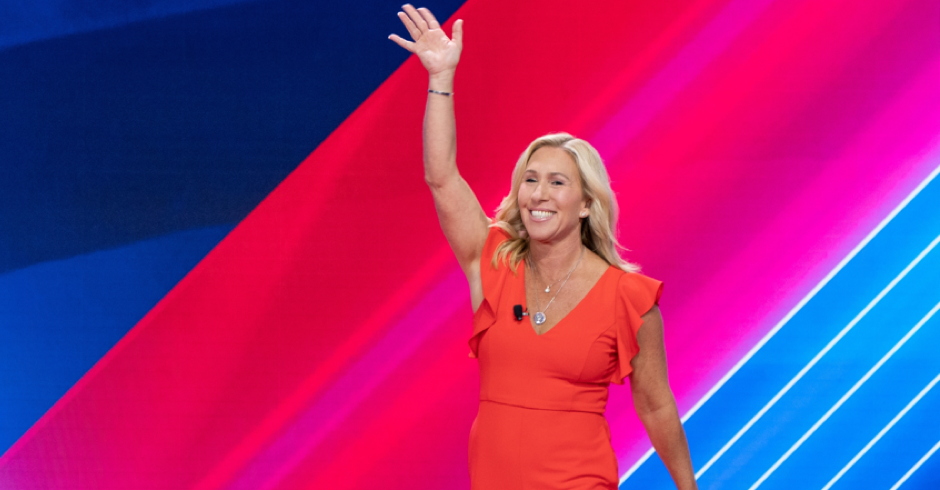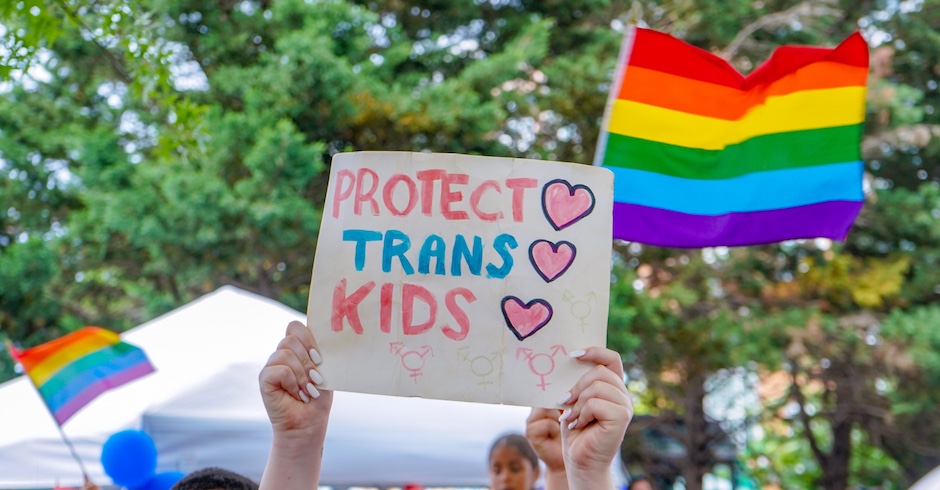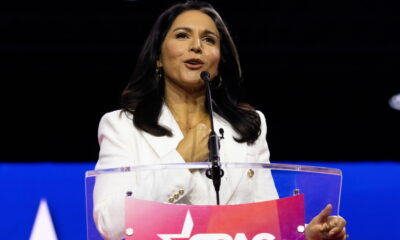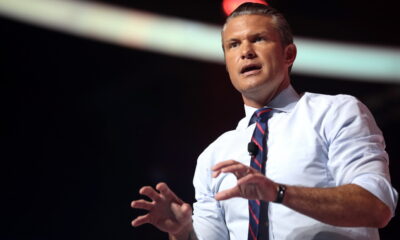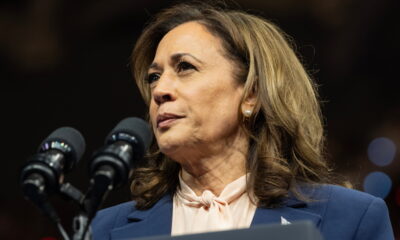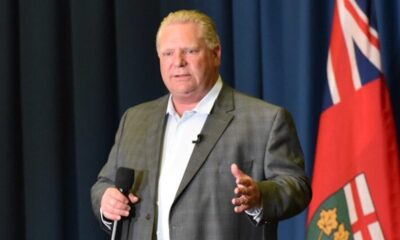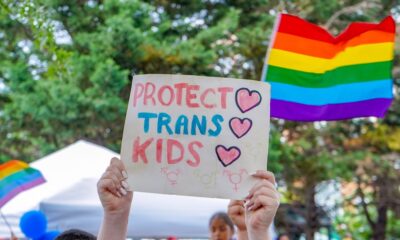Being an Ally in the Wake of Orlando
Being a good ally is challenging. Here are some thoughts on how to do it better.
For me, the word “ally†is sacred.Â
An ally, to me, is someone I can trust and turn to when I need help. It’s someone who’s not like me, but who “gets†me. Someone who does their best to understand, learn, and act.
There’s been a lot of talk this week about who is an ally and how to be an ally, especially on social media. But the thing is, there’s good action and there’s bad action, and this week, some folks have had a really hard time figuring out the difference between the two.Â
Here are some tips I’ve got based on the social media interactions I’ve had recently:Â
- Don’t go to gay bars just to “show solidarity.â€Â
I know that in the wake of Orlando people all across the country are looking for ways to be supportive. For many, that seems to mean invading our sacred spaces. I can’t believe I have to say it, but, don’t do this. You’ve seen article after article describing how gay bars are our places of refuge, our sanctuaries, and some of the only places many of us felt like we were “home.†Please, let us have them to ourselves. If you’re invited to go to a gay bar with a queer friend, go and enjoy, but remember, this place isn’t for you, and you’re a guest. Be respectful.Â
- Don’t be self-congratulatory just for doing the right thing.
Being an ally is awesome, it really is, so let your work speak for itself. if you’re doing it truly selflessly and because you believe in the cause, you’ll get noticed, I promise. We still live in a world where being an ally isn’t the default. We notice when straight people are stepping up for us. There’s no need write an article or op/ed to tell the world just how fantastic you are becuase you’re treating a marginalized group with respect. Think of “ally†like a college nickname. You can’t declare it for yourself. You have to earn it through action.Â
- Listen to your LGBTQ family and friends. Seriously, listen.
The number of people who’ve told me this week that I’m wrong about how to be an ally to my own community is astounding. LGBTQ people aren’t shy about telling you what we need. Seriously, we’re not afraid to let everyone know what we want. Listen to us, and then act on that. If you’re not ready to put aside your own desires, you’re probably not ready to be an ally.
- Ask good questions and respect our answers.
If you want to be there for LGBTQ people but you’re not sure what the best way for you to do that is, ask. Say: “I want to be there for you the best way I can, but I’m not sure what you need right now. What would you like from me?†From there, do what’s needed. It’s not glamorous to be the person who brings over a pint of ice cream and a bag of chips to a friend in need, but at that moment, it might be exactly the right thing to do. Every situation is different, but being a person we can count on and trust is universal.
- Look inward, both personally and communally.
In my book, an ally looks inward – both at themselves and at their own communities. They are reflective and pensive and make changes internally. An ally’s job is to speak to the people who are like them. If you’re an active member of your church and you want to be an ally to LGBTQ people, start by looking at what systems of oppression your church is complicit in and work to take those down. Listen to the language your pastors and congregants use – is it inclusive or exclusive? Challenge the people who are like yourself before going out into the broader community. Â
And if you’ve got a past full of anti-LGBTQ work and action? Before you can even think of becoming an ally you’ll have to overcome all of the damage you’ve done. Apologizing is just the first step. You’ll also need to actively work to reverse the policies and climate you’ve helped create.
- Don’t confuse being a decent person with being an ally.Â
Many people have said to me, “I can disagree with someone’s lifestyle and still respect them and not want to see them suffer from violence.†Yes, you can. And I would hope you wouldn’t want to see anyone suffer from violence, but that doesn’t make you an ally. That just makes you a decent person. A decent person values tolerance. An ally values affirmation and celebration.Â
 (Also, you’re gross for continuing to use the word “lifestyle†when it’s not 1998.)
A decent person says, “I’m going to be nice to you even when the system says I shouldn’t,†while an ally says, “I’m going to help you change the system.â€
- When you’re called out, accept the criticism and change your behavior.Â
If someone says to you, “I know that you’re trying to help, but what you’re doing actually hurts me,†don’t argue. If you’re not sure why, ask and listen to what they say. Too many times this week people have argued back when their so-called allyship was challenged. If you want to be an ally to a certain community, you must accept that community’s criticisms and take them seriously.
-  Don’t threaten to revoke your allyship if you get called out.
More than a few times this week someone has said to me, “Good luck getting more allies with that attitude!†or “You better be nice to me – you NEED us!†In short? No. No we don’t. If your allyship is contingent on one person being nice you to you, you’re not really an ally. If your feelings are more important than the safety of the group you’re trying to help? Not even a little bit of an ally.Â
Look, I get it. Being an ally is hard, it is. It’s hard to speak up for someone else when you have everything you need. It’s hard to put yourself into harm’s way when you could just as easily roll over and go back to sleep, safe and sound. But that’s what allies do – they put themselves into challenging situations so that LGBTQ people don’t have to. They make themselves uncomfortable in order to make others comfortable. You’re probably not going to get kicked out of your house or fired for speaking up. We very well might be.Â
Being an ally can be a thankless job – no one does it for the fame. But the great thing is? When it’s done right? We all get to enjoy the better world we’ve created, together.
Â
Robbie Medwed is an Atlanta-based LGBTQ activist and educator. His column appears here weekly. Follow him on Twitter: @rjmedwed.

Enjoy this piece?
… then let us make a small request. The New Civil Rights Movement depends on readers like you to meet our ongoing expenses and continue producing quality progressive journalism. Three Silicon Valley giants consume 70 percent of all online advertising dollars, so we need your help to continue doing what we do.
NCRM is independent. You won’t find mainstream media bias here. From unflinching coverage of religious extremism, to spotlighting efforts to roll back our rights, NCRM continues to speak truth to power. America needs independent voices like NCRM to be sure no one is forgotten.
Every reader contribution, whatever the amount, makes a tremendous difference. Help ensure NCRM remains independent long into the future. Support progressive journalism with a one-time contribution to NCRM, or click here to become a subscriber. Thank you. Click here to donate by check.
 |
